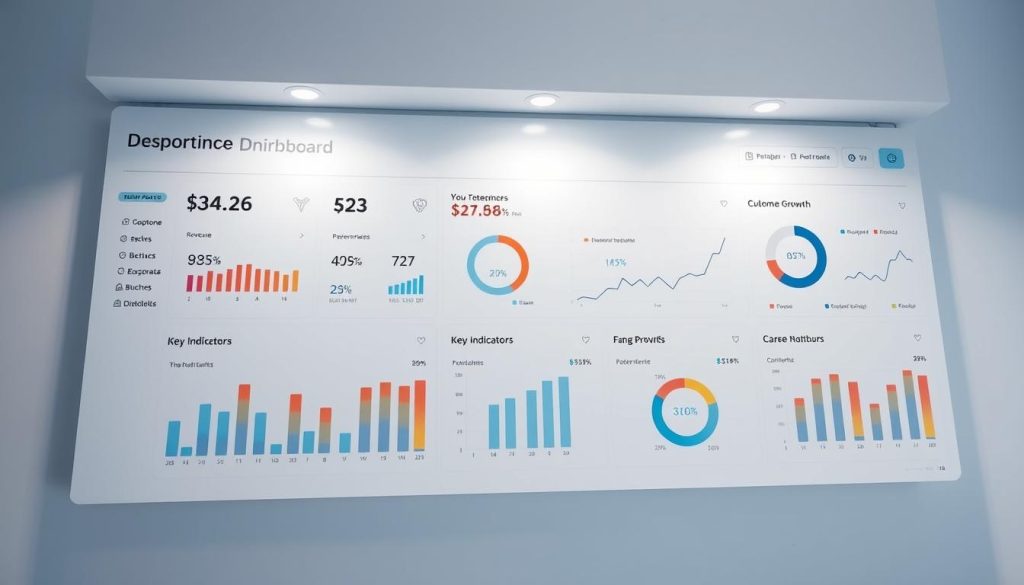As an independent professional, achieving career stability can be a daunting task. You wear multiple hats – service provider and business owner – and must navigate the challenges of a dynamic market.
Effective management processes are crucial to transforming your independent practice from uncertain to sustainable, providing a foundation for consistent growth. By mastering essential business skills, you can differentiate yourself from others and ensure a steady client flow and revenue.
Understanding the fundamental principles of management is key to your success. This comprehensive guide will provide you with actionable strategies to improve your operations and set you on the path to sustainable success.
Table of Contents
Key Takeaways
- Effective management processes for sustainable growth
- Essential business skills for independent professionals
- Strategies for consistent client flow and revenue
- Understanding fundamental management principles
- Actionable tips for improving business operations
Understanding Business Management for Independent Professionals
Effective business management is the backbone of any successful independent career, providing the structure needed for sustainable growth. As an independent professional, managing your business effectively is crucial for achieving stability and success.
Defining Business Management in the Independent Context
Business management for independent professionals involves the coordination of all business processes, resources, and decisions to achieve sustainable growth and stability. It encompasses a range of activities, from client acquisition to service delivery, and requires a unique set of skills that allows for switching between strategic thinking and hands-on implementation.
The definition of business management in this context is distinct from corporate management, focusing on self-directed processes rather than hierarchical structures. Independent professionals must manage every aspect of their business operation themselves.
Key Differences Between Corporate and Independent Management
The management approach for independent professionals differs significantly from that of corporate managers. While corporate managers oversee teams and departments, independent professionals must develop competency across all business functions or strategically outsource when necessary.
- Business management for independent professionals focuses on self-directed processes.
- Independent business managers must be adaptable and agile.
- Effective business management requires creating processes that maximize efficiency.
Assessing Your Current Business Management Skills
Assessing your business management skills is a critical step toward enhancing your independent career’s stability. As an independent professional, you wear multiple hats, from financial manager to marketer, and operations specialist. Understanding your strengths and weaknesses in these areas is crucial for success.
Essential Skills Inventory for Independent Professionals
To effectively manage your business, you need a diverse set of skills. This includes both hard skills, such as accounting and digital marketing, and soft skills, like communication and time management. Creating an inventory of your current skills will help you identify gaps that need to be addressed to improve your management capabilities.
- Hard skills: accounting, digital marketing, service delivery
- Soft skills: communication, time management, self-discipline
Identifying Your Management Strengths and Weaknesses
Your management strengths often align with your professional background and natural inclinations. Conversely, your weaknesses typically emerge in areas outside your core expertise or comfort zone. Recognizing these skill gaps is not a sign of failure but an opportunity to develop targeted improvement strategies that will enhance your overall business performance.
Consider seeking feedback from clients, colleagues, or mentors to gain an outside perspective on your skills and identify blind spots that may not be apparent through self-assessment.
Strategic Planning for Long-Term Career Stability
To ensure long-term success, independent professionals must adopt a proactive approach through strategic planning. This involves creating a roadmap for sustainable growth, transforming reactive day-to-day management into proactive business development. Effective strategic planning enables independents to navigate the challenges of their career with confidence.
Creating a Vision and Mission Statement
A clear vision and mission statement serve as the guiding force behind all business decisions, helping independents stay focused on their long-term objectives. This foundational step in strategic planning provides direction and purpose, ensuring that daily operations align with broader career goals.
Setting SMART Goals and Objectives
Effective strategic planning requires setting SMART goals (Specific, Measurable, Achievable, Relevant, Time-bound) that break down the larger vision into manageable objectives. Independent professionals benefit from developing both short-term goals (3-6 months) and long-term objectives (1-5 years) to balance immediate needs with sustainable career development.
| Goal Type | Timeframe | Example |
|---|---|---|
| Short-term | 3-6 months | Increase client base by 20% |
| Long-term | 1-5 years | Expand service offerings to new markets |
Developing Adaptable Business Strategies
In today’s rapidly changing market, business strategies must remain adaptable while maintaining alignment with core mission and values. Strategic planning for independents should address multiple dimensions of their practice, including service offerings, client acquisition, financial targets, professional development, and work-life balance.
Regular review and adjustment of the strategic plan ensure it remains relevant as the business evolves and market conditions change. Documenting the strategic plan creates accountability and provides a framework for evaluating progress toward goals and objectives over time.
Financial Management Fundamentals
Financial management is a critical aspect of being a successful independent professional, directly impacting career stability. As an independent professional in France, mastering financial management fundamentals is essential to navigate the complexities of your business and ensure long-term viability.
Budgeting and Cash Flow Management
Effective budgeting and cash flow management processes are vital for independent professionals to navigate the inherent income variability of freelance work. This involves creating a detailed budget that accounts for both business and personal expenses, as well as implementing strategies to manage cash flow effectively.
- Creating separate business and personal accounts to simplify financial tracking.
- Maintaining organized financial records to make informed decisions.
- Establishing emergency funds to cover at least 3-6 months of expenses.
Pricing Strategies for Independent Professionals
Developing appropriate pricing strategies requires balancing market rates with your unique value proposition, expertise level, and the resources required to deliver your services profitably. Many independent professionals undercharge for their services due to imposter syndrome or market pressure, creating financial strain that threatens their long-term business viability.
To avoid this, it’s crucial to conduct market research, understand your costs, and set prices that reflect the value you provide to clients.
Tax Planning and Financial Compliance in France
Understanding tax obligations and financial compliance requirements in France is crucial for independent professionals to avoid penalties and optimize their tax position through proper planning. This includes registering for the appropriate tax regimes, maintaining accurate financial records, and filing tax returns on time.
Regular financial review processes help identify trends in your business performance, allowing you to make data-driven decisions about which services or clients are most profitable. Investing in financial management software or professional accounting support can save independent professionals significant time while improving financial accuracy and compliance.
Effective Marketing Management for Independent Careers
In today’s competitive landscape, independent professionals must adopt a strategic approach to marketing management to stand out. Effective marketing management is not just about promoting services; it’s about building a sustainable business that attracts and retains clients.
Building Your Personal Brand
Building a distinctive personal brand is crucial for independent professionals. It helps you stand out in crowded markets by clearly communicating your unique value proposition and professional identity. Your personal brand should reflect your expertise, values, and the unique benefits you offer to clients. For more insights on developing key skills, visit our guide on essential skills for independent professionals.
Digital Marketing Strategies for Independent Professionals
Digital marketing strategies are vital for independents to establish authority and visibility in specific niches. Focus on content marketing through blogs, podcasts, videos, or social media to demonstrate expertise and attract ideal clients. Systematic marketing processes help maintain consistent client acquisition, even during busy periods.
Networking and Relationship Building
Networking and relationship building remain essential marketing management activities. They create referral networks that often generate higher-quality leads than digital channels alone. Effective communication is key to building strong professional relationships.
By balancing short-term lead generation with long-term brand building, independent professionals can create sustainable demand for their services. Regularly measuring marketing effectiveness through clear metrics helps refine the approach over time, focusing resources on channels and messages that resonate with target clients.
Client Relationship Management

Effective client relationship management is crucial for independent professionals seeking long-term career stability. It involves a combination of strategies that help in attracting, retaining, and satisfying clients, which is fundamental to the success of their business.
Attracting and Retaining Ideal Clients
Attracting and retaining ideal clients requires a clear definition of the target client profile and the development of service offerings that address their specific needs and pain points. Independent professionals must understand their clients’ expectations and tailor their communication strategies accordingly. This involves creating a client-centric approach that prioritizes client satisfaction and fosters long-term relationships.
Setting Professional Boundaries
Setting professional boundaries is essential for maintaining healthy client relationships. This involves establishing clear communication channels and service agreements that outline the scope of work, timelines, and expectations. By doing so, independent professionals can protect themselves from scope creep and ensure that their business remains sustainable.
Managing Client Expectations and Deliverables
Managing client expectations begins during the initial consultation and continues throughout the engagement. It requires transparent communication about deliverables, timelines, and limitations. Developing standardized onboarding processes helps in establishing professional relationships that balance client satisfaction with sustainable management practices. For more insights on defining your business offerings and identifying your target clients, visit this resource.
Time Management and Productivity Optimization
Optimizing productivity is essential for independent professionals who juggle multiple tasks, from client work to business development. Effective time management enables them to deliver high-quality services while maintaining a healthy work-life balance.
Prioritization Techniques for Independent Professionals
Effective prioritization is crucial for focusing on high-value tasks that directly contribute to business stability. Independent professionals can benefit from techniques like the Eisenhower Matrix, which helps categorize tasks based on their urgency and importance. By prioritizing tasks effectively, professionals can minimize time spent on low-impact activities and maximize productivity.
Effective Scheduling and Calendar Management
Calendar management is vital for independent professionals to stay organized and ensure that different categories of work are allocated sufficient time. By blocking dedicated time slots for tasks such as client work, business development, and administrative duties, professionals can avoid the pitfalls of reactive scheduling. Implementing structured processes for recurring tasks can also reduce decision fatigue and enhance overall efficiency.
Avoiding Burnout and Maintaining Work-Life Balance
Maintaining a healthy work-life balance is critical for sustaining long-term performance. Independent professionals must establish clear boundaries between their work and personal life to avoid burnout. Strategies such as time tracking, batching similar tasks, and intentional work-life balance planning can help professionals protect their mental and physical well-being while maintaining high levels of productivity.
Operations Management for Solo Practitioners
For independent professionals, creating a systematic approach to operations management is essential for achieving long-term stability and growth. Effective operations management involves designing processes that maintain quality while maximizing efficiency.
Streamlining Your Business Processes
Streamlining business processes requires identifying repetitive tasks that can be standardized, automated, or outsourced. This reduces administrative burden and allows solo practitioners to focus on core activities. By creating documentation for core processes, you can maintain consistency and potentially delegate tasks in the future.
Technology Integration for Efficiency
Technology integration plays a crucial role in modern independent practice operations. Carefully selected tools can create leverage, enabling solo practitioners to accomplish more with limited resources. This can include project management software, automated billing systems, and other digital tools that enhance productivity.
Quality Control and Service Delivery Standards
Developing clear service delivery standards helps independent professionals maintain consistent quality, even during high-volume periods or when expanding into new service areas. Embedding quality control mechanisms throughout operations ensures that deliverables meet professional standards before reaching clients.
Regular operations reviews are essential to identify bottlenecks or inefficiencies in current processes and implement targeted improvements. The goal of operations management for solo practitioners is not perfection but creating sustainable systems that support consistent performance while allowing for growth and adaptation.
Risk Management and Contingency Planning
Risk management is a critical component of business management for independent careers. It involves identifying potential risks and developing strategies to mitigate them.
Identifying Business Vulnerabilities
Independent careers face unique risks, including client concentration, market shifts, health issues, technology failures, and regulatory changes. Identifying your specific business vulnerabilities requires an honest assessment of dependencies in your business model and the potential impact if those elements were disrupted.
Insurance and Legal Protections
Insurance and legal protections appropriate for your profession and business structure provide essential safeguards against liability claims. For instance, consulting services can help you navigate the complexities of business insurance for independent professionals in France.
Creating Emergency Response Plans
Creating documented emergency response plans helps independent professionals make rational decisions during high-stress situations. This includes developing diversification strategies across your client base, service offerings, and income streams to reduce dependency on any single element of your business.
Leadership and Self-Management
Leadership and self-management are intertwined skills that independent professionals must develop to ensure long-term success. As an independent professional, you are not only responsible for your work but also for guiding your career trajectory. This dual role requires a strong foundation in leadership and the ability to manage yourself effectively.
Developing Self-Leadership Skills
Developing self-leadership skills is crucial for independent professionals. This involves cultivating self-awareness about your motivations, strengths, and weaknesses. Effective self-leaders establish personal accountability systems to stay focused on priority activities. They also develop emotional regulation skills to navigate the ups and downs of independent work without becoming reactive. By doing so, they maintain a consistent level of performance and make informed decisions.
- Cultivate self-awareness to understand your motivations and areas for improvement.
- Establish personal accountability systems to stay on track.
- Develop emotional regulation skills to manage stress and maintain productivity.
Decision-Making Frameworks for Independent Professionals
Decision-making frameworks are essential tools for independent professionals, enabling them to evaluate options objectively and make consistent choices aligned with their business strategy and personal values. Independent leaders must balance confidence in their expertise with humility about their limitations, knowing when to trust their judgment and when to seek outside perspective. By adopting a structured decision-making approach, you can ensure that your choices support your long-term goals and adapt to the evolving needs of your business.
- Use decision-making frameworks to evaluate options objectively.
- Balance confidence with humility to make informed decisions.
- Continuously adapt your decision-making approach as your business evolves.
Building Support Systems and Strategic Partnerships
Creating a strong network of support and strategic alliances is key to sustainable business growth for independents. As independent professionals, it’s easy to fall into the trap of isolation, yet building robust support systems and strategic partnerships is essential for long-term career stability and personal wellbeing.
Creating a Professional Network
Developing a professional network provides independent practitioners with emotional support, knowledge sharing opportunities, referrals, and collaborative possibilities that enhance business stability. Participating in mastermind groups, professional associations, or co-working communities can provide structured opportunities for connection and collaboration.
- Attend industry events to expand your network
- Engage in online communities related to your field
- Participate in local business groups
Outsourcing and Delegation Strategies
Effective outsourcing and delegation strategies allow independent professionals to focus on their highest-value activities while leveraging external resources for specialized or time-consuming tasks. Building a virtual team of trusted contractors, specialists, and administrative support creates flexibility that allows independent professionals to scale their capacity based on current demand.
- Identify tasks that can be outsourced
- Find reliable external resources or services
- Establish clear communication channels
Forming Strategic Alliances
Strategic alliances with complementary service providers create mutual benefit through referrals, bundled services, or collaborative projects that expand capabilities without increasing overhead. Developing clear processes for partner selection, collaboration agreements, and quality control ensures that strategic relationships enhance rather than detract from your professional reputation.
- Identify potential partners
- Establish mutually beneficial agreements
- Monitor and adjust partnerships as needed
Continuous Learning and Professional Development
In today’s fast-paced business environment, continuous learning represents a significant competitive advantage for independent professionals. It enables them to adapt to changing market demands and command premium rates for their specialized skills.
Staying Current in Your Field
To stay current, independent professionals must intentionally allocate time and resources for professional development, treating it as an essential business investment. This involves staying updated on the latest trends and management practices.
Business Management Education Options in France
France offers various business management education options for independent professionals, including formal degree programs like Master’s in Management and specialized certifications. Institutions like EDHEC offer programs accredited by AACSB, AMBA, CEFDG, and EQUIS, available in both French and English.
Creating a Personal Development Plan
Creating a structured personal development plan helps independent professionals balance technical skills enhancement with business management competencies. This plan should address current skill gaps and emerging trends, preparing professionals to evolve their service offerings proactively.
Measuring Success and Adjusting Course

To maintain a thriving independent career, it’s crucial to establish effective metrics for success. This involves setting clear goals and tracking performance across multiple dimensions of your business.
Effective business management for independent professionals requires establishing clear metrics that define success beyond simple revenue figures. Key performance indicators should span multiple dimensions of your practice, including financial performance, client satisfaction, operational efficiency, professional development, and personal wellbeing.
Key Performance Indicators for Independent Professionals
Key performance indicators (KPIs) for independent professionals should include both lagging indicators (revenue, profit margins) and leading indicators (proposal conversion rates, client inquiries). This dual approach provides early insight into business trends and helps in achieving goals. For more information on managing your independent career, you can refer to our comprehensive guide on reussir-en-portage-salarial.
- Financial performance metrics
- Client satisfaction scores
- Operational efficiency measures
Regular Business Reviews and Strategy Adjustments
Regular business reviews on quarterly and annual cycles help independent professionals objectively assess their progress toward strategic goals and make data-informed adjustments. It’s essential to balance responsiveness to market feedback with commitment to your core business strategy.
Developing dashboard systems that make performance tracking simple and accessible reduces the administrative burden of business measurement. This enables independent professionals to focus on achieving their objectives and adjusting their strategy as needed.
Conclusion: Mastering Business Management for Long-Term Independence
Mastering business management is the cornerstone of a successful independent career. The most sustainable independent practices are built on a foundation of strong business fundamentals rather than relying solely on technical excellence or personal charisma.
Independent professionals who achieve long-term stability typically demonstrate balanced attention to all aspects of management, including strategic planning, financial management, and client relationship management. The organization and systematization of your independent practice create freedom rather than constraint, providing structure that supports consistent performance while reducing cognitive load.
- Developing an integrated approach to business management that aligns with your strategic vision and personal values.
- Continuously refining your skills and strategies as your business evolves and market conditions change.
- Creating a practice that sustainably delivers both professional fulfillment and financial security on your own terms.
By focusing on management and organization, independent professionals can achieve long-term success and maintain a competitive edge in an ever-changing business landscape.
FAQ
What are the essential skills for independent professionals to achieve career stability?
Independent professionals require a range of skills, including strategic planning, financial management, effective communication, and time management, to achieve long-term stability in their careers.
How can I assess my current business management skills as an independent professional?
You can assess your skills by conducting an inventory of your strengths and weaknesses, identifying areas for improvement, and seeking feedback from clients or peers to create a comprehensive picture of your abilities.
What is the importance of creating a vision and mission statement for my independent career?
A clear vision and mission statement help guide your strategic decisions, ensure alignment with your goals, and communicate your unique value proposition to clients and stakeholders.
How do I develop adaptable business strategies as an independent professional?
To develop adaptable strategies, stay informed about industry trends, regularly review and adjust your plans, and remain open to new opportunities and challenges, allowing you to pivot when necessary.
What are some effective pricing strategies for independent professionals?
Effective pricing strategies include value-based pricing, competitive pricing, and tiered pricing, which help ensure you’re fairly compensated for your services while remaining competitive in the market.
How can I maintain a healthy work-life balance as an independent professional?
To maintain a healthy work-life balance, prioritize tasks, set realistic goals, establish a routine, and make time for self-care and relaxation, helping to prevent burnout and maintain overall well-being.
What are the benefits of building a professional network as an independent professional?
Building a professional network provides access to valuable resources, support, and opportunities, helping you stay informed, find new clients, and navigate challenges in your independent career.
How can I measure the success of my independent career?
You can measure success by tracking key performance indicators (KPIs) such as revenue growth, client satisfaction, and project completion rates, and regularly reviewing and adjusting your strategies to ensure you’re meeting your goals.





